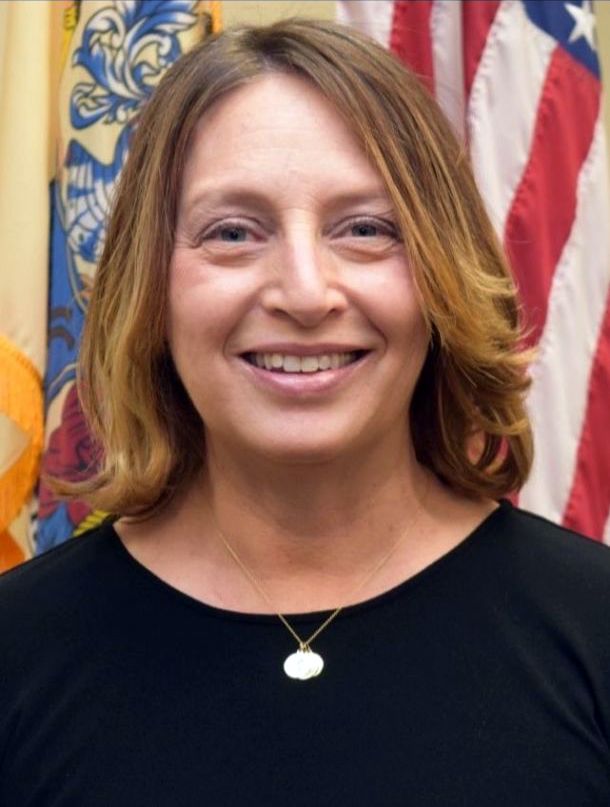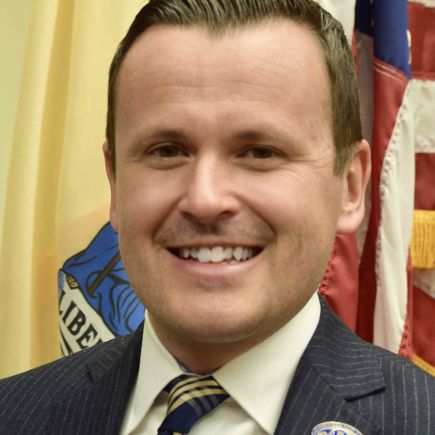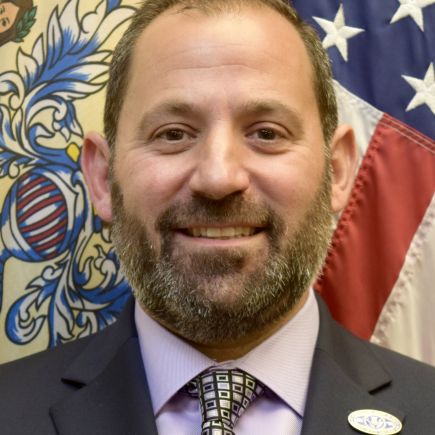
Message from Deputy Mayor Ellen Zimmerman | February 23, 2023
Beverly Mills is a direct descendant of a slave, Friday Truehart, who was brought to the Sourland Mountains of central New Jersey from South Carolina as a teen in the late 1700s to work the land.
From her unique perspective, Mills relates the story of her ancestor in a two-part documentary that will be shown at the Nettingham Middle School, 580 Park Ave., on Wednesday, March 8 at 6:30 p.m. The event, brought to our community by the Scotch Plains-Fanwood Public Schools, in collaboration with the Township of Scotch Plains, the Borough of Fanwood, and Truth Racial Healing and Transformation, is free to attend; all are welcome to hear from the filmmaker and cast members as part of this special screening.
Mills writes: “New Jersey is the Garden State. We’re known for our blueberries, we’re known for our corn, we’re known for our peaches. But we’re not known for the slaves that were here tilling the soil, we’re not known for the whole history of slavery right here, and how slavery was the underpinning of much of the wealth of New Jersey.”
As we mark Black History Month, I hope you will join me in the viewing of this important documentary. It tells how Mr. Truehart worked for years without pay for a Baptist minister and his son. Finally, Mr. Truehart gained his freedom and became one of the first African American landowners in Central Jersey.
“The Price of Silence” offers stories of slavery in New Jersey. It shares some unexpected, as well as some uncomfortable, explanations about how the Garden State’s landscape, institutions, finances, and prominent families benefitted from the toil of slaves throughout the generations.
The documentary is an important reminder of the racial disparities that have plagued our state’s history. It also provides New Jersey with a harsh lesson about local slavery, as many of us have been quick to dismiss the practice as an abhorrent Southern crime that never travelled so far north as to poison our state.
A Northern state, the general assumption is that New Jersey was fighting to abolish slavery during the Civil War. But slavery, by the mid-1800s, was already an engrained norm for 200 years. In fact, I learned, the Dutch colonists kidnapped slaves in Africa in the early 1600s, bringing them to New Jersey, not the South.
At the time, slave ships could be seen in the port in Perth Amboy – just 16 miles away from Scotch Plains. From there, enslaved people were forced to work on farms throughout our area, the precursor to the suburban neighborhoods in which we all live.
“The Price of Silence” is a production of Truehart Productions, a nonprofit founded in 2019 to provide the public with a fresh, unapologetic view of slavery and how it helped carve present-day New Jersey.
“I think your average New Jerseyan still does not understand that slavery existed in this state,” explains Linda Caldwell Epps, Ph. D., a Black historical researcher and consultant on the film, in an interview with the USA Today Network. Despite having grown up in New Jersey, she noted, “Never once, in elementary or high school, did I learn anything at all about the enslavement of people in the state.”
In 1804, New Jersey became the last Northern state to officially abolish slavery – giving freedom to an estimated 12,000 people with no education and nowhere to go. Recordkeeping was poor, at best, as slaves were regularly swapped like cattle and family ties were unclear. Some New Jersey farms still had slaves when President Lincoln read the Emancipation Proclamation on Jan. 1, 1863.
According to Epps, there was no great eagerness in New Jersey to give up slavery, as the state had a strong trading relationship with the Southern states. There was too much money to be made by selling leather goods and other manufactured items off the backs of slaves.
Beverly Mills, with her friend Elaine Buck, also co-wrote the book, “If These Stones Could Talk,” about the African American history of the Sourlands-Hopewell Valley region. They also founded the Stoutsburg Sourland African American Museum in Skillman, located in a 19th century African Methodist Episcopal Church.
Join me on March 8th for the viewing of this powerful film, as we strive to learn more about New Jersey as a manufacturing hub thriving on human enslavement for more than 200 years. Yes, it is an uncomfortable lesson. But it is one we all should learn.
For those who can’t attend the March 8 screening, the two-part series can also be streamed here:
Part one, The Price of Silence: The Forgotten Story of New Jersey’s Enslaved People, explains the little-known legacy of slavery across New Jersey.
Part two, The Price of Silence: The Lasting Impact of Slavery in New Jersey, continues the exploration of slavery in New Jersey with moving stories about events that took place during the 19th century, followed by the lasting impact that slavery still has in New Jersey.




